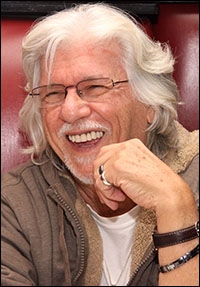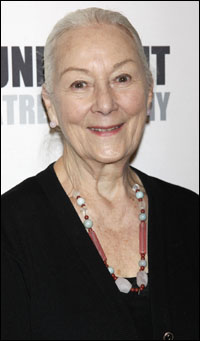
Last fall, jazz singer Dee Dee Bridgewater played the legendary songstress in Lady Day, a work written and directed by Stephen Stahl, at the Little Shubert Theatre. That show concluded Jan. its run 5.
What would induce producers to the seeming insanity of mounting a rival play about Holiday in the same season? The interest of five-time Tony Award-winning actress Audra McDonald, that's what.
McDonald will return to Broadway in Lanie Robertson's play with music, Lady Day at Emerson's Bar and Grill, which will begin performances March 25 at Circle in the Square. It will officially open April 13, under the direction of Lonny Price. The Broadway production will be a limited, 10-week engagement, produced by Jeffrey Richards and Jerry Frankel.
The 1959-set play, which centers on one of Holiday's final public appearances, takes place in Philadelphia four months before the singer's death. The show was an early hit for the young Vineyard Theatre way back in 1986, starring Lonette McKee.
*** Broadway producers were doubtless overjoyed by a decision handed down this week by the Tony Awards Administration Committee. The body voted last month to allow the Tony Nominating Committee the ability to expand or reduce nominees in the four major Tony categories: Best Musical, Best Play, Best Revival of a Musical and Best Revival of a Play.
The key word in that last sentence is expand. The ruling will allow a maximum of five nominees per category (rather than the current four nominees) should more than nine shows be eligible in a given category. This judgment means that more shows can be honored, thus allowing more producers to march around Times Square each spring boasting that they are the backers of a Tony-nominated show.
***
 |
||
| Martin Charnin |
||
| photo by Joseph Marzullo/WENN |
"It will... most importantly, approach the performances in a very truthful way, restoring the humor, strength, heart, and joy that are vital components of Annie, and that were in short supply, in the recent revival," Charnin said of his new stating.
Such breaking of ranks is rare in theatre circles. Playwrights and composers are often displeased by new productions of their works, but they usually keep their grievances to themselves and rarely say so for the record.
If Charnin expected his co-authors, Charles Strouse and Thomas Meehan, to stand by his side, he was mistaken. Soon after, the two men issued a statement. It said, in part, "Neither of us were interviewed for the article in which Martin Charnin speaks for the three original creators of Annie. Contrary to Martin, we admired James Lapine's vision for the Broadway revival. Did we miss some moments from the past? Of course, but the production held many new and inspired surprises, including the big tap-dancing number that made for an exciting finale."
***
 |
||
| Rosemary Harris |
||
| Photo by Joseph Marzullo/WENN |
As previously reported, Stoppard's Indian Ink will be directed by Carey Perloff (artistic director of A.C.T. in San Francisco). Performances will begin Sept. 4, prior to an official opening Sept. 28, at the Laura Pels Theatre.
***
How can a rag like The National Enquirer, usually the bane of every celebrity's existence, end up being the perpetrator of an artistic good?
You can thank for that odd circumstance the late actor Philip Seymour Hoffman — at least, in a sidelong way. This week, David Bar Katz, a playwright and friend of Hoffman, announced the formation of a foundation that will give out an annual prize of $45,000 for an unproduced play. The prize, which will be called the Relentless Award, is formed in memory of Hoffman's determination to achieve artistic truth. Like most playwrights, Katz is not independent wealthy. The money that fuels the new award comes from the Enquirer, and the story behind why a tabloid would cough up such dough for a wholly altruistic cause is one of the strangest in the annals of showbiz history. Katz was one of the first people to find Hoffman's body after he succumbed to an overdose of heroine. The Enquirer published a false interview stating that Katz and Hoffman were lovers and had taken cocaine together the night before his death. The article also reported that Katz said he had seen Hoffman using heroin repeatedly.
The New York Times reports that Katz had never spoken to The National Enquirer, nor had he witnessed Hoffman using drugs in his presence; instead, he said he had communicated with Hoffman frequently about his addiction and determination to remain sober.
Katz filed a libel suit shortly after the publication of the story, and The Enquirer withdrew the article and apologized within two days. As part of a settlement of the lawsuit, the foundation and Relentless Award are being paid for by The Enquirer and its publisher, American Media Incorporated. The agreement also stipulated that The Enquirer buy a full-page advertisement in the main news section of The New York Times that ran Feb. 26.
Katz did not receive or seek any personal payments following the publication of the article and instead sought to find a settlement that would be meaningful to Hoffman. The selection committee for the Relentless Award will include Katz, Eric Bogosian, John Patrick Shanley and Jonathan Marc Sherman.


Evan-Zimmerman-for-MurphyMade.jpg)






